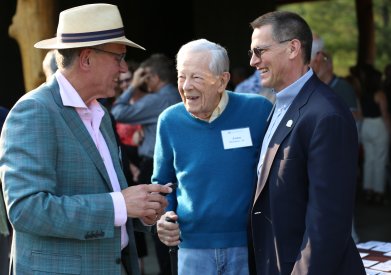Building Trust in the LGBTQ Community
June 12, 2019
In this second letter about one of our eight Trust Practice Challenge winners, we are highlighting and reflecting on what we can discover about building trust.
UnityPoint Health – Prairie Parkway in Cedar Falls, Iowa has integrated an LGBTQ clinic into its family medicine clinic, serving a population of more than 40,000 including students from the University of Northern Iowa, a state school in the area. The clinic is open two evenings per month from 5 to 7 p.m. and is staffed by full-time employees of other UnityPoint Clinic locations who work there in addition to their regular duties at their “home clinics.”
The clinic focuses on creating a welcoming, comfortable environment for people in the LGBTQ community. Team members are trained to query patients about pronouns and their preferred name, a small but affirming step for patients who identify as transgender or gender-fluid. The competencies identified for this practice include:
- Mindset: showing up with the intention to adapt the care experience to be personal and comfortable for everyone served.
- Openness: to sensitivity and bias awareness.
- Mutual support and accountability: through taking the time for reflections in huddles before and after clinic. At the close of the day, clinicians and staff share “joy bombs” and “pain spots” (rapid-cycle process improvement).
The authors of this practice reflect on how “there has been a legacy of poor experiences in healthcare for the LGBTQ community. In addition to social, legal, and structural discrimination, there is a lack of cultural competence within the healthcare experience. This exacerbates health disparities for the LGBTQ community.” To combat this, staff members attend one to two-hour Safe Zone training sessions—sensitivity and bias-awareness instruction that equips them with the correct skills and language and enables them to create a mutually accountable culture.
What is particularly noteworthy, as the authors state, is that the practice is so powerful it provides a framework for all clinical practice. The key elements of the practice—compassion, multi-disciplinary teamwork, robust huddles, story-telling and person-centered care–—can be applied everywhere.
The lessons about building trust from the Prairie Parkway LGBTQ Clinic include:
- The importance of knowing your patients, respecting them and knowing how to address them.
- The need to address gender bias as essential to quality and equitable care.
- The power of huddles and reflection to build trust and a shared understanding among team members.
- The importance of education and training in sensitivity and bias awareness.
- The applicability to all populations, particularly those who have historically been subject to discrimination and bias such as gender, racial and ethnic groups.
- The importance of caring and compassion for your patients and team members.

Daniel B. Wolfson
EVP & COO, ABIM Foundation


